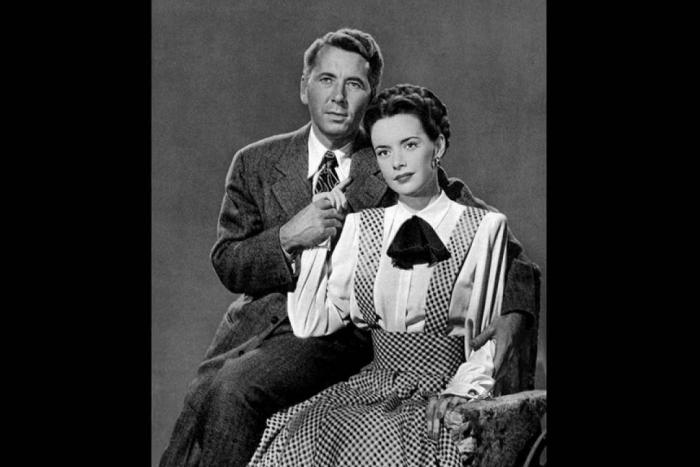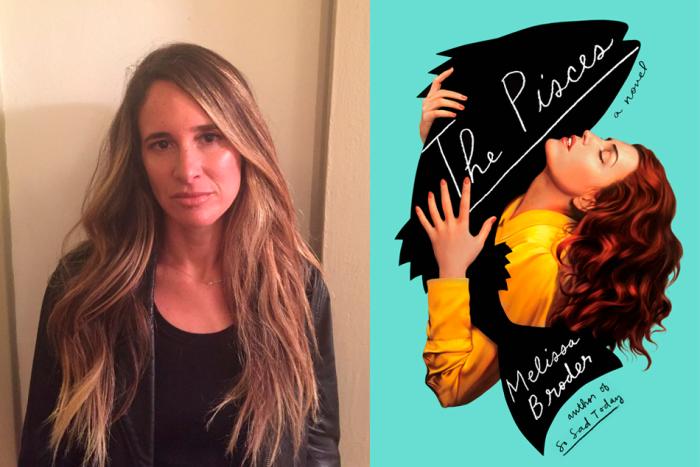Friday, June 15 marks the last day of Ramadan this year, a sacred month for Muslims to fast from sunrise to sunset. Ramadan occurs on the ninth month of the Islamic calendar, once a crescent moon has been detected. Muslims worldwide, if able, practice good deeds to become a better Muslim, and abstain from pleasures, sin and food as an act to become closer to God. Ramadan has long been understood to me as a month-long opportunity to pause.
I grew up fasting. As a child, I was told I only had to complete half-days. I would break fast at school at noon while everyone ate lunch. It was always a great way to find out which other students shared my faith. By the time I reached high school, I became more selective about when I would fast—it was entirely out of convenience, and I would spend more time trying to find ways to pretend I was completing my fast than actually doing so. Sometimes I would hide snacks in my room, or school bag, feeding myself before Meghreb. Ridden with guilt, I would make sure I ate after everyone else or request to make my own meals. But by the time I reached university, my questions about Islam, and religion altogether, steered me clear of any guilt about missing a day of fasting. I began to critique my faith rigorously. Most of my twenties have been a back and forth about faith, especially when relatives were murdered back to back. At some point, I had no faith in faith anymore. I had no hope for this dunya (meaning “world”). I did not know how to.
I’m happy I went through that period of questioning—it brought me closer to Islam. By 2015, my relationship to my faith, once again, was shifting: I was fasting again. I was re-teaching myself how to pray. I was asking questions. I was trying to learn more. I began to accept that I don’t need to make sense of it all in order to have faith. You just have it or you don’t, and that doesn’t need to be explained.
Last year was the first time in several years that I did not fast for Ramadan. I was not well, and I wasn’t admitting it to myself. I lost my grandmother, was struggling through my first year in a doctoral program, had a family member try to move to Somalia the day that Trump’s travel ban was announced. Meanwhile, I was navigating my first real experiences of gendered violence on my body—twice, in one month—while my face and name made headlines across publications in my home city for helping Black women get into academia. I didn’t have the energy or capacity to recognize any positivity in that moment. I was overwhelmed and I wanted to get out. By the time Ramadan had arrived I was swamped with rerouting my life from my home city of Toronto to Montreal, without much consideration that I would be living without my community, family, and friends during one of the most vulnerable moments in my life. It was the first time I really felt alone. Every day felt like it was getting harder to breathe. I was depressed. I was angry.
*
I tried to run it away
Thought then my head be feeling clearer
I traveled 70 states
Thought moving around make me feel better
I tried to let go my lover
Thought if I was alone
then maybe I could recover
To write it away
or cry it away
Away, away, away, away, away, away
Away, away, away, away, away
— "Cranes in the Sky," Solange
A year later, I moved back to Toronto into a beautiful home—it’s spacious, full of sunlight, swarmed with plants, in a secluded area. It’s the most quiet and peaceful space I’ve ever lived in.
My time here for the past few months has allowed me to reflect heavily on what space means to me, especially as a Black Muslim woman who grew up in a household full of men. I’ve never felt that I’ve had space that was rightfully mine. I never felt a spiritual ownership of a space or home. I’ve always had somewhere to live—alhamdulilah—but until this house, I never felt like I had a home.
Like last year, this year was chaotic. I started off the year mourning my uncle who was murdered in a Mogadishu bombing in October. It was the birthday of his son, Masud, who was murdered four years prior in Toronto. I really began to wonder about the disposability of Black life. I was overwhelmed with the realization that death in my family, and community, seems to rarely be the result of natural causes. I began to ask where it’s safe to be Somali. It was the first time I realized how easy it is for Black girls to disappear—and how easy it is to want to.
My current home has felt like the first step towards peace in a long time.
But this home is situated in one of the whitest neighbourhoods in this city. Once, a guest and I stepped out of my house to sit outside in the sun. My neighbours were watching their children while they were playing with their toy water guns. As we moved around my house, the children started probing us with questions, occasionally pointing the water guns in our direction with innocent, unknowing smiles. They asked why we were there, because they didn’t think we belonged. At one point, they gently asked us to leave. Their assumption was that we were labourers—perhaps cleaners or nannies in the area. That is, after all, these children’s only understanding of how women of colour exist in this world. My friend and I were completely puzzled as to how to tell children they were being inappropriate. We were even more puzzled by the lack of intervention by the adults who were present.
Our live-in landlord was also present as the children probed my friend and I without intervention. They said nothing.
As someone raised in Scarborough, a multicultural borough in the east end of the city, my current neighbourhood has definitely been a difficult readjustment. But inside my home, I am at peace, and at the least, we all deserve that: a peaceful home, if we are so fortunate. In a city with an incredibly inequitable housing market, finding an affordable and lovable home is already difficult enough. I was lucky to have finally found something I adored and could afford in Toronto.
Two weeks after I moved into this house, I found out it was being sold.
The first day that I fasted this Ramadan was the day I woke up, looked outside, and saw a “sold” sign outside of our house. An hour later my roommate broke the news to me: we were moving.
I was angry. I wasn’t just angry about the sale sign, I was angry that I finally had something that felt like a little bit of peace, and I wouldn’t have it anymore. I was starting off my Ramadan angrier than I had already been. It’s one thing when hardships come our way because, perhaps, there is some spiritual lesson that the universe or God (or whatever faith system you have) brings to us to grow from. And then there are hardships that come your way merely because this world is trash, and your fate is nothing but the result of structural power.
For the past year, I have tried to find meaning in what feels like an ongoing plateau of unfortunate events. I am accepting that there is no spiritual lesson to be found in experiencing gendered violence. There is no spiritual lesson in dealing with anti-Blackness. There are no spiritual awakenings that come with murder.
*
A few days after I received the news that I would be searching for a new place to live (for the fifth time in the past year), I broke my fast by listening to music. I was fuming while I walked from my house to the subway station, observing the neighbourhood I would no longer be calling home, and I figured that my anger was not useful to a productive fast that day anyway. “Mad” by Solange came on. I’ve heard this song, and the album in its entirety, damn near a million times. But with good music, there is always something new to be discovered or observed, regardless of how much the work has aged. For the first time ever, I paid attention to the lyrics of the first few lines of the song, and continued to repeat them during my twenty-minute commute from High Park station to downtown Toronto:
You got the light, count it all joy
You got the right to be mad
But when you carry it alone you find it only getting in the way
— "Mad," Solange
They were the words I needed to hear in that moment. As Audre Lorde says, “my anger is a response to racism.” My anger is always valid. It’s loaded with details, understanding and information about the structures of this world. However, despite how valid my anger is, it harms no one but me. It chips away at my heart, my health, and my spirit—no one else’s. It slowly kills me. That’s the catch. Black women are given every valid reason to be angry existing in a world that continuously renders us invisible, and yet, we are projected as too angry for society in order to erase any validity to our very real frustrations. The “angry black woman” archetype functions to conceal the realities of the day-to-day violences that are projected onto us. I’ve spent too much time trying to validate my anger, or have it be validated, that I’ve failed to realize the necessity of letting it go.
“Anger is loaded with information and energy...”
-Audre Lorde
And so, I’ve come to understand Ramadan as having another advantage: it is a time for me to address and sort through my anger. I wasn’t able to fast every day this Ramadan, but I tried my best. Ramadan this year was a sacred starting point for me in the process of letting go. It’s helped me understand that my anger can, and will, illuminate me.
I’m ending this Ramadan knowing that I don’t need to just be well. I want and need to learn the tools to help me proactively stay well—a shield, if you will—to help me continue to get through this life. This may seem pessimistic, or, perhaps, realistic: but I am painfully aware that there will be more shitty times, much like there will be good times, too. I want to be prepared for both. A part of me suspects that the anger I have carried with me for the past year is the result of an accumulation of traumatic events that I haven’t healed from. As my brother likes to remind us, it’s not normal how much my family, or our community, has danced with death. There is a lot I have been carrying with me throughout my life. There is a lot that I need to let go. I was never taught the blueprint of self care. I’ve been making it up along the way, as many of us do. And by chance, or by luck, I’ve been surviving. But we can’t always afford luck.
For the first time in a long time I no longer lack hope that I will be better. I believe there's more to life than this. There is better than this. I have so much work to do before I arrive there, and inshallah, I will. In the meantime, all I can control is my body and my mind, and in this life, I must protect them both. I’m beginning to believe that the past year was the universe, or God, or something, telling me to slow down; to find the tools of self-care; to love myself better, and be patient with myself. That I won’t be able to continue to live peacefully until I locate adequate tools of self care. My anger has been whispering for me to listen to myself and my body more. It’s telling me to find ways to let go. And, thankfully, it was Ramadan that finally helped me hear it.
Outside of abstaining from eating food, or committing any sins, fasting is a bit more specific for me. I like to call it my fix-up month. For thirty days I (try) to find ways to re-centre myself. I’m cognitive of who I speak to, how I speak to people, how I speak about people, and how I speak to myself; I pay closer attention to the energy I receive and the energy I release into the world. We often talk about protecting our energy and space from others without really reflecting on the energy we bring into the world ourselves. Ramadan helps me make sure I am aligning myself to be the person I want to see in this world, and to remind myself that I should continuously hold myself to that standard. I listen to myself more. I am softer with myself. I talk to God more. I feel more free. Ramadan might not always necessarily bring me peace, but it always brings me clarity.
“My anger has meant pain to me but it has also meant survival, and before I give it up I’m going to be sure that there is something at least as powerful to replace it on the road to clarity.”
— Audre Lorde






